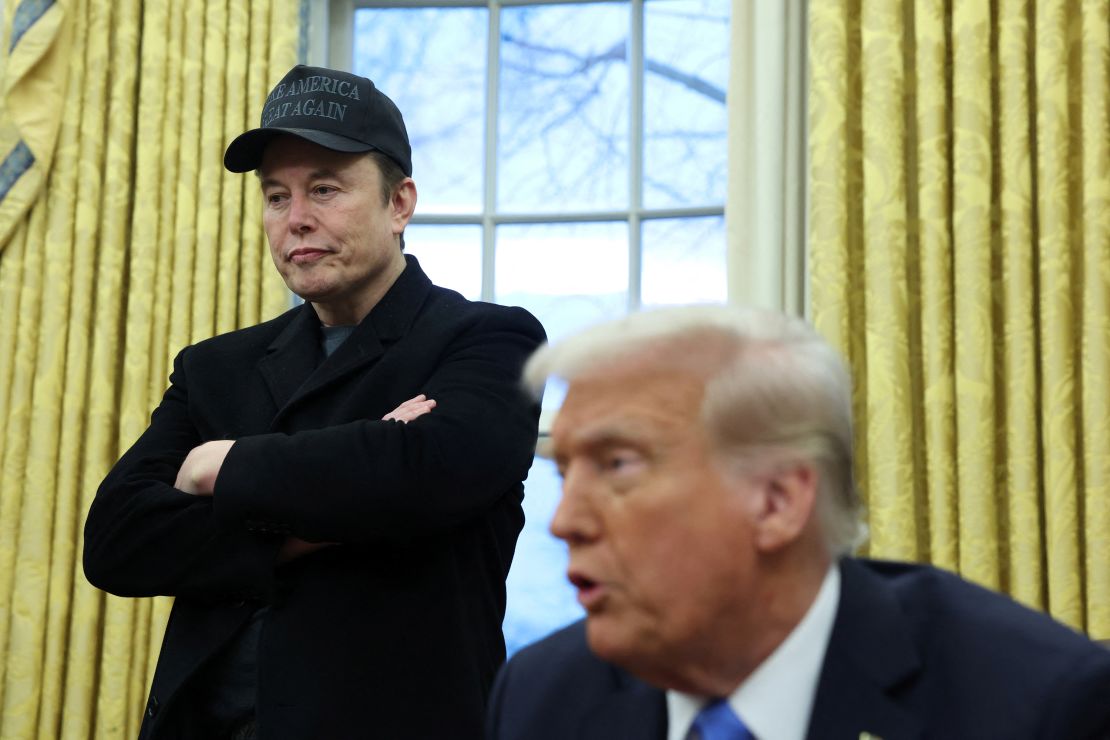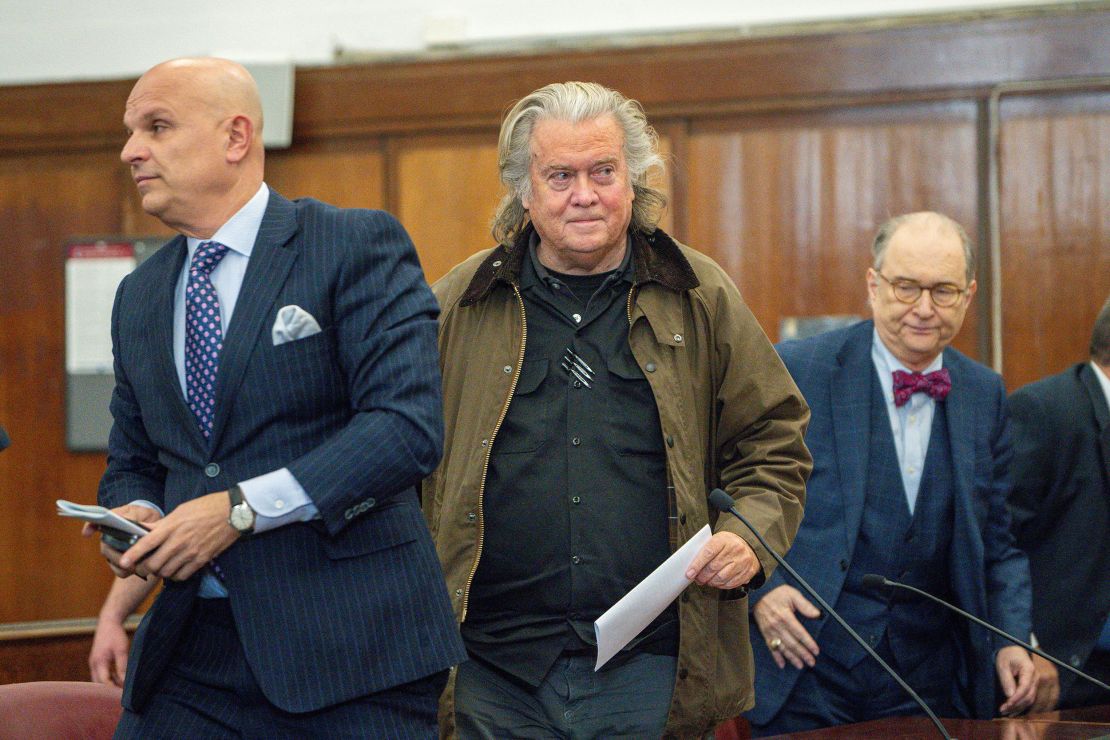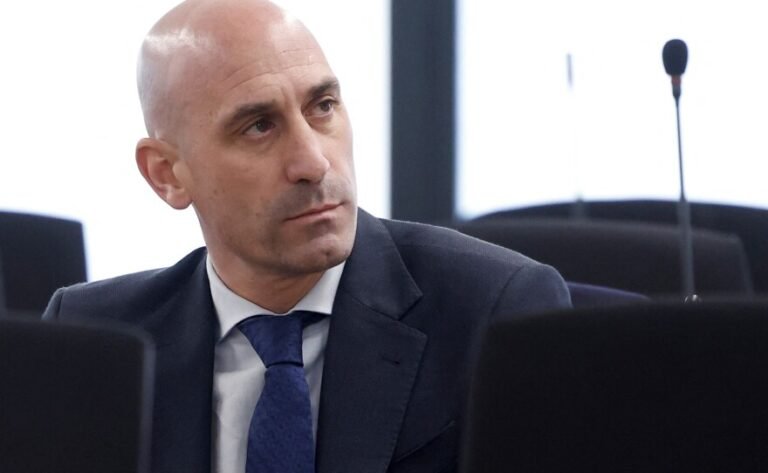His inquiries fan out across the top rungs of President Donald Trump’s administration, and one official said they often boil down to an unsparing question: “What the f*** are you guys doing?”
“I try not to bother people,” Bannon said in an interview, chuckling at the characterization of his communication style. “They’re busy. When I call someone, it’s not to catch up. It’s to say, ‘What the f*** is happening here? How did this go down?’”
Eight years ago, Bannon didn’t need to chase down updates. As chief strategist to Trump in 2017, his desk was steps from the Oval Office. Today, Bannon mostly speaks to Trump and his circle of advisers the same way he connects to his sizable audience of MAGA loyalists: through his “War Room” podcast.
The key question for Bannon is whether his frank opinions – including some critiques of the new Trump White House – carry the same sway now, as a voice unbound by official titles, or whether his distance from the levers of power has dulled his impact.
Speaking to CNN during a late-night drive Tuesday after his court appearance in Manhattan, where he pleaded guilty to defrauding donors in a fundraising effort to build a border wall, Bannon insists he’s more effective operating from the sidelines. His megaphone is now larger and louder, he says, which Trump, an instinctive entertainer, can appreciate.
He also maintains a pipeline to Trump, he said, who he calls directly, though sparingly, and whom Bannon believes keeps tabs on his daily broadcasts.
“If you watch the show, and look at his executive orders, you can derive that when we’re not in communication, he’s still watching a lot of the show,” Bannon said.
Bannon has been known to join the White House’s surrogate calls, during which they preview Trump’s upcoming executive orders and other big moves. But a White House official cautioned against overestimating Bannon’s effect.
“He isn’t impacting policy decisions,” the official said.
Taking on Musk

Broadcasting from a basement near the US Capitol, Bannon’s four-hour weekday program (and a scaled-down two-hour Saturday program) serves as the unofficial clearinghouse for the ideological underpinnings of Trumpism.
The self-styled architect of Trump’s first White House bid guides his audience through the intricacies of the president’s moves, unpacking the choreography behind the spectacle. He dwells on the details — diplomatic protocols during visits from foreign leaders, the geography of the White House grounds, the jargon unique to the West Wing’s inner sanctum — offering the kind of granular insight that suggests a lingering proximity to power.
He casts himself as both commentator and enforcer of the MAGA agenda, wielding his platform to amplify grievances against the president’s political foes and shape the contours of Trumpism from the outside.
Lately, that includes targeting the cadre of Silicon Valley billionaires seeking to curry favor with Trump. Bannon has publicly rebuked their defense of special visas for tech workers, a stance he argues undermines the economic nationalism central to “America First.” He has repeatedly lashed out at Elon Musk, labeling the Tesla chief executive and Department of Government Efficiency leader a “transhumanist” and an “evil person.” He has also cautioned that Trump’s fascination with redevelopment plans in Gaza is a strategic distraction.
“We are going to support the president when we can,” Bannon told CNN, “And those times when we have to recommend a different way, we’re going to recommend a different way.”
Inside Trump’s political orbit, opinions diverge on whether Bannon’s influence has waned or evolved.
“Influence comes from the people. When you have the people’s support, you’re influential,” said Rep. Marjorie Taylor Green, a top Trump ally in Congress and a regular on Real America’s Voice, the far-right channel that airs Bannon’s show. “He’s a big voice of MAGA, and that’s helpful for the President’s agenda. He’s someone that pushes back when people aren’t in line.”
Others question the extent of Bannon’s reach – though those who did so asked not to be named.
His crusade against Musk, stemming in part from a deep personal skepticism of artificial intelligence, has exposed the limitations of his persuasion, some advisers say. For example, Trump sided with Musk and other tech executives over Bannon on the need for H1B visas, a tool preferred by large corporations looking for foreign workers. Over Bannon’s objections, Musk is also firmly entrenched within the corridors of power — underscored by his striking side-by-side appearance with Trump in the Oval Office on Tuesday and the sweeping power he now wields to reshape the federal government and its workforce.
One person close to Bannon and Trump suggested the criticism levied at Musk is tactical.
“Bannon knows what he’s doing. He’s brilliant at comms and as someone who worked with him, he’s trying to paint himself as if he is equal to Elon,” the person said. “That’s not the case, but he is gaining that type of attention from this.”
Another adviser to Trump candidly said: “Trump doesn’t give a sh*t what Bannon says on this.”
Bannon’s staunchest supporters suggest his clout may not always be easy to see. Over the years, though, his impact has been felt throughout the country.
At Bannon’s urging, his listeners will bombard local election officials with emails echoing the latest voting conspiracy theories. His show was a key platform for rallying thousands of MAGA diehards to become poll watchers this election cycle. County Republican groups saw a spike in candidates running for GOP precinct positions last year after Bannon made it a priority on his show for Trump-aligned conservatives to help take over their local parties.
“A lot of people don’t know how the party works and its inner workings and it’s hard to get the message out to encourage involvement,” said Lacey Riley, the chairwoman for the local GOP in Denton County, Texas, where Bannon recently addressed a packed fundraiser. “We have people who became chairs because of him talking about it. That was his push.”
Bannon has recently trained his army of followers to pressure key Republican senators to support Trump’s more contentious Cabinet picks. Except for Trump’s first choice for attorney general, former Rep. Matt Gaetz, all of the president’s nominees appear poised for confirmation.
“He’s the most powerful person in the movement,” said Caroline Wren, a top Trump fundraiser and veteran political strategist. “I’ll put clients on Fox News and there’s no feedback. But if you go on the ‘War Room,’ it’s instantaneous. The audience is locked-in and laser-focused.”
Lobbying on policy and personnel

Bannon maintains close ties to many top officials in Trump’s new government. At least a half dozen of Trump’s agency heads made appearances on his show over the years, including Office of Management and Budget Director Russ Vought, Treasury Secretary Scott Bessent, and national intelligence chief Tulsi Gabbard. He built a close alliance with Trump’s deputy chief of staff Stephen Miller, a driving force behind the administration’s immigration crackdown and slashing of personnel, dating back to the 2016 presidential campaign.
Vought was recently on the receiving end of one of Bannon’s direct (and vulgar) calls. In an exchange first reported by the Wall Street Journal and confirmed by CNN, Bannon complained that Musk wasn’t moving with enough urgency to meaningfully cut spending. He told Vought: “You’re his boss; tell him to go f*** himself. We look like idiots.”
“These guys know I’m pretty hard on them with the deficits and cutting the spending,” Bannon said. “Russ is the best, but he has to juggle a lot of things. I’m adamant you got to give them the bad news.”
Bannon launched the “War Room” podcast in 2019, and the show rapidly cultivated a loyal audience and a reputation as a breeding ground for conspiracy theories about elections, the coronavirus pandemic, and the so-called “deep state” — narratives that have heavily influenced conservative politics. His steadfast loyalty to Trump during the former president’s political exile has cemented his standing with the Republican base.
Bannon says he is in the early stages of “working with people” to build a legal case for Trump to run for president again in 2028. The idea, which Trump has mused about, collides head-on with the Constitution’s two-term limit for the presidency.
“I’m all for it,” said Bannon.
Support for Bannon only hardened when Bannon left the show last summer to serve a four-month prison sentence for refusing to testify in front of the House investigation on January 6. The “War Room” is at times one of the 100 most downloaded Apple podcasts and tens of thousands more watch it live or view clips of it online. His plea deal in New York this week means he won’t face prison time — or another interruption in his broadcasting schedule.
Bannon asserts his impact on Trump’s second term is undeniable. For example, he was an early advocate for Bessent to lead the Treasury Department when others, including Musk, pushed for businessman Howard Lutnick. Bessent got the job and Lutnick ultimately was named secretary of commerce.
Last week, Bannon claimed another victory after Trump instructed Musk to “check out the Pentagon.” Trump’s declaration came after Bannon had repeatedly ripped into Musk’s efforts for not starting with defense spending, a sizable chunk of the federal budget.
“Until you cross the Potomac, it’s not real,” Bannon said on the “War Room.”
When he’s not streaming his thoughts to the 1 million-plus people who follow him across various web channels, he’s in constant contact with lawmakers on the Hill, strategizing with legislative staff or gathering intel from within the halls of power.
“He’s way more plugged in than people realize,” said Jack Posobiec, a fellow far-right commentator and Trump devotee. “It’s a good idea to keep an eye on which targets he’s choosing because there’s a method to the madness.”
One of Bannon’s latest fixations is the March 14 deadline to extend government spending. All week, Bannon has issued warnings that neither the White House nor Congressional Republicans seem focused enough on avoiding another continuing resolution that would essentially lock in President Joe Biden’s spending levels for another period.
Bannon contends that would undo Musk’s work slashing government programs and expose it as a “blunt force instrument” with unrealistic goals for cutting the deficit and growing the economy.
“As we get into March, people are going to be pissed, disappointed,” Bannon said, “and they’re going to say what the f*** have you been doing?”














